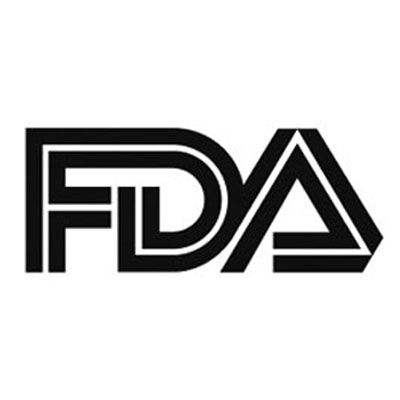FDA Approves Nivolumab for Unresectable Esophageal Squamous Cell Carcinoma
The FDA granted approval to nivolumab for the treatment of patients with unresectable advanced, recurrent, or metastatic esophageal squamous cell carcinoma after receiving prior fluoropyrimidine- and platinum-based chemotherapy.

The FDA has granted approval to nivolumab (Opdivo) for the treatment of patients with unresectable advanced, recurrent, or metastatic esophageal squamous cell carcinoma (ESCC) after receiving prior fluoropyrimidine- and platinum-based chemotherapy, announced Bristol Myers Squibb.
This is the first immunotherapy approved by the FDA for the treatment of this patient population, regardless of PD-L1 expression.
“Many cases of esophageal cancer are diagnosed at the advanced stage when the disease could have a significant impact on a patient’s health.3 Treatment options can be limited once patients with advanced esophageal squamous cell carcinoma progress,” stated Adam Lenkowsky, general manager and head, US, Oncology, Immunology, Cardiovascular, Bristol Myers Squibb. “The approval of Opdivo as a new treatment option for previously treated patients with advanced esophageal squamous cell carcinoma, regardless of PD-L1 expression, highlights our commitment to providing new options to address the unmet needs of patients and brings us another step closer to understanding the full potential of immunotherapy for gastrointestinal cancers.”
This approval was based on findings from the phase 3 ATTRACTION-3 clinical trial, in which nivolumab demonstrated superior overall survival (OS) compared with taxane chemotherapy (HR, 0.77; 95% CI, 0.62-0.96; P =.0189). The median OS for the nivolumab arm was 10.9 months (95% CI, 9.2-13.3) versus 8.4 months with chemotherapy (95% CI, 7.2-9.9).
In the multicenter, active-controlled, open-label global ATTRACTION-3 study, patients were randomized to receive either nivolumab (n = 210) or investigator’s choice of docetaxel or paclitaxel (n = 209). Patients were enrolled from Asia predominantly, but patients from the United States and Europe were also included in the study.
OS was the major efficacy outcome in this study, but additional efficacy outcomes included overall response rate (ORR), progression-free survival (PFS), and duration of response (DOR). Patients who received nivolumab were also assessed for safety.
The ORR in the nivolumab arm was 19.3% (95% CI, 13.7-26.0), and the ORR in the chemotherapy arm was 21.5% (95% CI, 15.4-28.8). The difference between the ORR for the 2 arms did not have statistically significant. Responses in the nivolumab arm included 0.6% complete responses and 18.7% partial responses compared with 1.3% complete responses and 20.3% partial responses in the chemotherapy arm.
The median PFS in the nivolumab arm was 1.7 months (95% CI, 1.5-2.7) compared with the median PFS of 3.4 months (95% CI, 3.0-4.2) in the chemotherapy arm (HR, 1.1; 95% CI, 0.9-1.3).
Serious adverse reactions were observed in 38% of the patients who received nivolumab, and serious adverse reactions occurring in ≥2% of patients included pneumonia, esophageal fistula, interstitial lung disease, and pyrexia. Fatal adverse reactions included interstitial lung disease or pneumonitis (1.4%), pneumonia (1.0%), septic shock (0.5%), esophageal fistula (0.5%), gastrointestinal hemorrhage (0.5%), pulmonary embolism (0.5%), and sudden death (0.5%). Overall, 13% of patients discontinued treatment with nivolumab and 27% received treatment delays because of an adverse reaction. The most common adverse reactions which occurred in at least 20% of patients in the nivolumab arm included rash (22%) and decreased appetite (21%).
In the nivolumab arm, patients received the agent at a 240 mg dose via intravenous infusion over 30 minutes every 2 weeks. Docetaxel was given intravenously every 3 weeks at 75 mg/m2 (n =65), and paclitaxel was given at 100 mg/m2 intravenously once a week for 6 weeks, followed by 1 week off (n = 144). Patients received treatment until disease progression according to RECIST v1.1 or unacceptable toxicity.
This study included patients regardless of PD-L1 expression. However, tumors were evaluated prospectively with the PD-l1 IHC 28-8 pharmDx assay at a central laboratory.
Patients who were refractory or intolerant to taxane therapy were excluded from the study, as well as patients who had brain metastases that were symptomatic or required therapy, had an autoimmune disease, used systemic corticosteroids or immunosuppressants, or had apparent tumor invasion of the organs adjacent to the esophageal tumor or had stents in the esophagus or respiratory tract.
Esophageal cancer is a gastrointestinal cancer beginning in the inner layer of the esophagus, and ESCC accounts for less than 30% of esophageal cancers in the United States. For a quarter of the patients diagnosed with ESCC, the disease is diagnosed in the advanced stage, which is harder to treat.
Reference
U.S. food and drug administration approves ppdivo® (nivolumab) for the treatment of patients with advanced esophageal squamous cell carcinoma (ESCC) after prior fluoropyrimidine- and platinum-based chemotherapy. News Release. Princeton, NJ: Bristol Myers Squibb; June 10, 2020. https://bit.ly/37l4qtt. Accessed June 11, 2020.